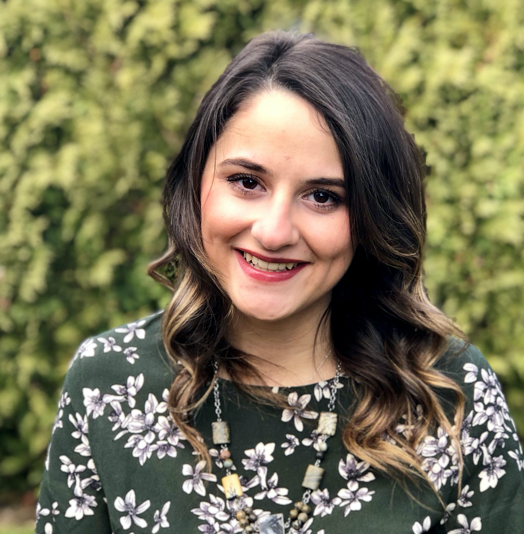Approach + Modalities
Warmth & Compassion
I see young adults and adults of all genders, all sizes, abilities, races, and ethnicities. I strive to make the therapeutic space as inclusive as possible. I specialize in disordered eating/eating disorders (Binge Eating Disorder, OSFED, Anorexia Nervosa, Bulimia Nervosa, ARFID); post-traumatic stress disorder (PTSD); and anxiety and related disorders.
I am certified and trained in the Unified Protocol and fully trained in EMDR. I have particular interest in the intersection of perinatal mood and anxiety disorders (PMADs) and eating disorders, and the intersection of trauma and eating disorders.
I take a warm, compassionately firm, and collaborative approach with my clients. I believe best practice includes collaborating with all members of my client's outpatient team (dietitian, psychiatrist, primary care physician, etc.). My trauma-informed goal is to create a safe and confidential environment to facilitate building healthier relationships and cultivate self-compassion.
Modalities
I am a relational-cultural therapist which means I believe growth and healing occur through mutual and authentic relationships, paying close attention to how our histories impact connections. In addition to Relational Cultural Theory, I use the Unified Protocol to target underlying belief symptoms, promote cognitive flexibility, and cultivate emotion awareness in mind & body; EMDR to help process trauma; and EFFT when supporting caregivers.
For more information on these approaches, please see below.
What is The Unified Protocol?
The Unified Protocol (UP) is a form of cognitive-behavioral therapy (CBT) for individuals diagnosed with anxiety disorders, depression and related disorders, including eating disorders (referred to as emotional disorders). The UP is evidence-based as it combines elements such as mindfulness, acceptance and commitment therapy, cognitive therapy, behavioral therapy, and exposure therapy.
The UP is research supported to reduce anxiety and depressive symptoms and is efficient as the UP targets multiple disorders simultaneously.
By targeting the core features that maintain multiple disorders (i.e. eating disorders, OCD, panic, depression), this intervention can simultaneously reduce symptoms across many conditions. This means more efficient relief from symptoms for you! Like other cognitive-behavioral (CBT) interventions, the UP is goal-directed and present-focused.
More information on the UP: http://www.unifiedprotocol.com/About/49/
What is EMDR?
While many times traumatic experiences can be managed and resolved spontaneously, they may not be processed without help. That’s where EMDR comes in. Eye Movement Desensitization and Reprocessing (EMDR) therapy is an extensively researched, effective psychotherapy method proven to help people recover from trauma and other distressing life experiences.
When you cut your hand, your body works to close the wound. If a foreign object or repeated injury irritates the wound, it festers and causes pain. Once the block is removed, healing resumes. EMDR therapy, rather than focusing on changing the emotions, thoughts, or behaviors resulting from the distressing issue, allows the brain to resume its natural healing process.
For more information on EMDR: https://www.emdria.org/
Somatic Experiencing
Somatic Experiencing® (SE) is a body-oriented approach to the healing of trauma and other stress disorders. I am currently in my intermediate year of Somatic Experiencing. The sessions are client-focused and practitioner-led. In SE, we work over time to experience and strengthen embodiment, and to bring ease to the nervous system. We build capacity to feel our emotions and to withstand difficulty. We may feel like we are gradually unwinding and awakening. I weave SE into my sessions naturally as well.
Somatic Experiencing helps with:
- A more regulated nervous system
- Feeling more embodied
- Experiencing and strengthening the many ways your body, mind, and emotions support your well-being
- Gently releases unresolved fight, flight, and freeze responses that may be bound in your system after trauma
- Addresses more deeply-imprinted patterns
Emotion Focused Family Therapy (EFFT)
I truly believe that to best way to support someone in pain is to get their supports involved. Healing does not happen in isolation.
Read more here: http://www.renfrewsupport.org/blog/bringing-support-persons-into-the-healing-process/
EFFT was initially developed by Adele Lafrance and her colleagues for caregivers of loved ones with eating disorders. Its application has since been extended for those struggling to support a loved one with a wide range of behavioral and emotional challenges.
Influenced by the theory and science of interpersonal neurobiology, the essence of Emotion-Focused Family Therapy (EFFT) is to support caregivers to increase their role in their loved one’s recovery from mental health issues. In fact, the EFFT clinician believes that it is most therapeutically worthwhile to empower caregivers to help their loved one, regardless of age, given that they are “wired” together. Thus, their main responsibility is to support parents to become an active agent of healing.
Emotion-Focused Family Therapy (EFFT) is a lifespan approach that can be delivered with entire families, caregiver-child dyads, and with parents/caregivers only. In fact, one of the key strengths of the EFFT approach lies in the fact that clinicians can support caregivers to take on these roles regardless of their loved one’s age or involvement in formal treatment themselves.
For more information: https://www.emotionfocusedfamilytherapy.org/



